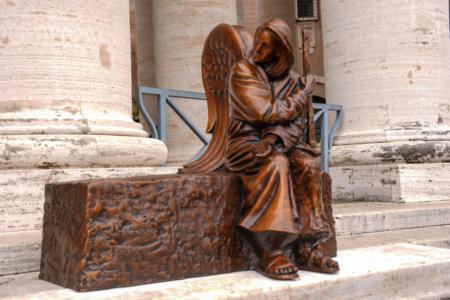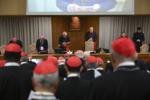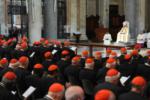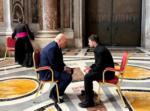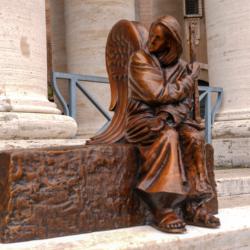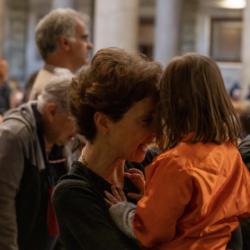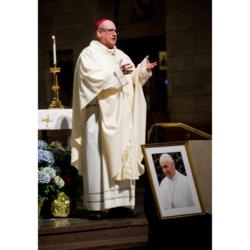Why?
In the aftermath of human tragedy we are invariably tempted to wonder why such things happen.
Manmade tragedies — wars, terrorist acts, genocide — in some ways seem simple to explain. They speak of the fallen human nature and the evil present in the world.
Evil is a necessary consequence of the free will that God gave His creatures. The only proper use of that God-given freedom is to seek Him, to choose good and avoid evil. But sin can overshadow that call to holiness and happiness, creating a bondage that sparks a spiral of violence and hatred. Great takings of human life are the most dreadful manifestation of that hatred. The Holocaust, the Rwandan genocide and, more recently, the Sept. 11 attacks and the ongoing slaughter in Darfur are all examples of that imprint of human evil.
But when a tragedy is the consequence of the destructive forces of nature, such as the tsunamis in South Asia, it can lead people of any creed — or none — to question the presence, the goodness and the providence of God. Since human failings cannot be blamed, the finger of responsibility points squarely to God. In fact, natural tragedies are often referred to as “acts of God.”
How can a good God allow so many innocent people to die so horribly and, apparently, without mercy? The answer to that question begins by acknowledging that God is the Lord of History. While we cannot know the purpose of every event, we do know that all that happens — including sin, suffering and death — is part of a salvific and loving plan of God.
The Catechism says that God “in His wisdom” created the universe “in a state of journeying toward perfection,” implying that we live in an imperfect environment. We recognize that imperfection in ourselves when we, many times, desire to do good but instead do evil. We also see imperfection in nature. The earth is in a constant state of change, as is the whole cosmos that surrounds us. The destructive, clashing forces of nature are also part of that plan of God.
From a Catholic perspective, suffering and death are an integral part of human existence. Scripture tries to respond to the meaning of suffering in many passages. In the Old Testament, suffering is seen initially as the consequence of sin. But, as Israel matures, the Scriptures also seek to explain the senseless suffering of the innocent, particularly at the hands of the “wicked.” The psalms contain many pleas, begging God to intervene on behalf of the just who are being persecuted.
But the question of “why” largely remains unanswered regarding the senseless destruction caused by nature and sickness. The story of Job, whose possessions are decimated, his children killed, and he himself inflicted with a terrible sickness, gives us a glimpse of the salvific meaning suffering can have if it is accepted.
After all his many trials, Job could have easily followed his wife’s advice: “Curse God and die.”
Instead, he blessed the Lord for everything that happened to him saying, “I know that you can do all things, and that no purpose of yours can be hindered. I have dealt with great things that I do not understand; things too wonderful for me, which I cannot know. I had heard of you by word of mouth, but now my eye has seen you. Therefore I disown what I have said, and repent in dust and ashes.”
Adversity becomes a privileged moment for Job, allowing him to have a personal encounter with God.
The story of Job finds its fulfillment in the sufferings of Christ, the innocent lamb slaughtered for our salvation. Only through the Passion of Christ can we grasp the true meaning of all suffering.
One thing is certain. God, according to St. Augustine, “would never allow any evil whatsoever to exist in His works if He were not so all-powerful and good as to cause good to emerge from evil itself.”
In this time of tragedy, the myriad of unselfish and often heroic acts of those who are working to help those in need are certainly a sign of good that comes out of evil. The unprecedented worldwide outpouring of donations to help survivors of the catastrophe is another example.
In the plan of God, everything makes sense. One day we, too, will fully understand.
